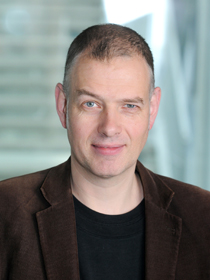New Project to Explore Alternative Pathways for Refugees to Enter Europe
The Syrian "refugee crisis" in Europe and the war in Ukraine have highlighted the limitations of traditional asylum systems.
It has also highlighted the potential of alternative approaches, such as temporary protection instruments.
A new research project, focusing on Ukrainians and Syrians, is being launched to explore the potential of different legal and safe pathways.
The project, called "Refugee Protection or Cherry Picking: Assessing New Admission Policies for Refugees in Europe (ARiSE)" is being led by research fellow Zvezda Vankova, at the Faculty of Law at Lund University in collaboration with Albert Kraler, Assistant Professor at the Department for Migration and Globalisation at Danube University Krems.
"In recent years, there has been an increased interest in developing legal pathways to protection, through which refugees can be actively admitted. Such policies are referred in the academic debate as 'active refugee admission policies' (ARAP)," says Zvezda Vankova.
Active refugee admission policies include an array of existing instruments, such as resettlement managed by United Nations High Commissioner for Refugees and state-led programs, but also new channels based on labour migration, education, and family reunification, as well as community sponsorship for refugees where civil society takes an active role in supporting and integrating refugees.
‘ARAP are definitely a positive development in view of the dangers linked to irregular movement of asylum seekers. ‘ARAP provide safe and legal channels for refugees and other displaced persons to access protection. But they also come with problems.’ says Albert Kraler.
States have broad leeway to ‘cherry-pick’ those that match states’ interest-driven selection criteria. Often these criteria follow a migration control rather than a protection control rationale, says Zvezda Vankova.
In addition, ARAPs are often heavy handed, with burdensome procedures and often a fairly limited number of refugees benefitting from such programmes. “There are many lessons to be learnt from the admission of Ukrainian refugees in this context”, says Zvezda Vankova.
The project is refugee-centered and will focus on providing a theory-led, empirically grounded assessment of ARAP for Ukrainian and Syrian refugees, two groups with different situations, in Europe and the practical challenges and opportunities associated with their implementation.
The researchers aim to compare the active refugee admission policies being developed in European countries in order to explain their adoption, design and implementation. The core of the research consists of four case studies of both source and destination countries for Ukrainian and Syrian refugees.
The research project will produce a series of scientific articles as well as policy recommendations showing the added value and possible pitfalls of the establishment of active refugee admission policies in Nordic countries.
The research project runs for three years and is financed by the Swedish Research Council.
Project Facts
|
Title: Refugee protection or cherry picking? Assessing new admission policies for refugees in Europe (ARiSE) |
|
|
|
Funding |
Swedish Research Council | |
|
Project Duration |
1.3.2023 – 1.3.2026 |
|
|
Project coordination |
Lund University |
|
|
Project Partner |
University for Continuing Education Krems (Researcher: Albert Kraler) |
|
For further information about the project contact Albert Kraler (albert.kraler@donau-uni.ac.at).
Photo Credits: © Jonte on flickr.com (CC BY-NC 2.0)
